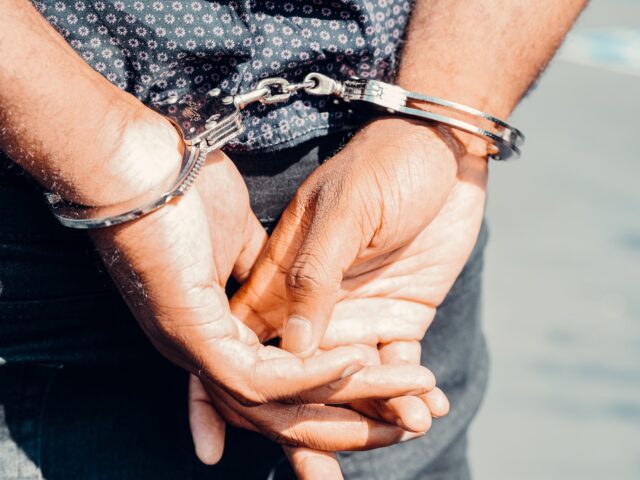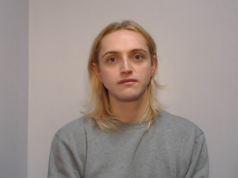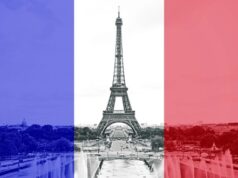Following the attack on the 23rd of November, which saw three children and two adults wounded – and left a five-year-old girl and a care assistant in critical condition – it has been reported that the chief suspect in the stabbings that led to the riots was once the subject of a deportation order.
The suspect in the terror attack arrived in Ireland illegally over two decades ago, senior Garda (Irish police) sources have said.
In 2008 the Irish Department of Justice granted the man – who has yet to be named – leave to stay in Ireland after his deportation order was revoked. After fighting the order for five years he obtained an Irish passport.
The man in his late 40s has caught the Garda’s attention multiple times in the past year. Earlier this year, he was arrested for possession of a knife.
Reportedly the terror suspect has been spared previous convictions due to “mental health reports”.
Amidst the uproar, media allegations suggest that the protests and riots following the stabbings of three children and a woman, while the children lined up outside their school, were caused by “far-right” factions.
However, some political commentators have argued that the public’s outrage is more closely linked to dissatisfaction with the Irish government and concerns about the mass importation of illegal migrants.
According to the annual review of migration and asylum in Ireland by the Economic and Social Research Institute: “Ireland saw a significant increase in immigration in the year leading up to April 2023, with 141,600 people arriving into the state, which represents a 31% increase from the year to April 2022. Among the top three countries of origin among applicants were Algeria, Somalia and Georgia.
The Irish Prime Minister, Leo Varadkar, has announced in response to the riots – which he branded as crowds of “thugs” – that Ireland will be introducing new laws surrounding policing online discourse in regard to ‘hate speech’.
“It’s now obvious to anyone who might have doubted it that our incitement to hatred legislation is just not up to date for the social media age”, Varadakar insisted in a press release. The Irish PM has not however announced any plans to toughen up Ireland’s terror legislation.
Attempting to placate tensions following the attack, Varadkar has reaffirmed his government’s pro-mass migration position.
“We’re a country of migrants. We’ve gone all over the world as a people”, Varadkar insisted.
“Our public services wouldn’t operate without migration. There’d be nobody to look after the sick or to care for the old, certainly not enough people”, Varadkar claimed.
“When I go into big companies, whether it’s tech companies or companies that produce medical devices or pharmaceuticals, I see how diverse the workforce is”, Varadkar said.
“And these are the companies and the people who pay massive amounts of tax that allow us to build social housing and schools, and to fund our public services and our welfare system. If it wasn’t for migrants, this country would be a vastly inferior place to what it is”, he continued.
Mirroring London Mayor Sadiq Khan’s famous comment that “terrorism is part and parcel of living in a city”, Irish Prime Minister Leo Varadkar said: “Yes of course, people who are migrants might commit crimes, just as people who aren’t commit crimes”.
He went on to say, “in a country of 5.3 million people with hundreds of thousands of migrants, there are going to be a few of them who commit terrible crimes, just as there are people born and bred in Ireland who commit terrible crimes every day, including murders”.
The 5-year-old child, who was stabbed in the chest remains in a serious condition.
In a 2022 interview, Varadkar was highly critical of British politician Priti Patel in her role as Home Secretary, stating that her plan to send asylum seekers to Rwanda “was disgusting”.
The estimate of “undocumented persons” in Ireland, according to The Migrant Rights Centre Ireland, is around 26,000.
The Garda have been said to be checking for links to Islamism having confiscated the suspect’s electronic devices and equipment to conduct their search for evidence.
In response to the disorder following on from the stabbings by the Algerian suspect Garda Commissioner Drew Harris responded that “we could not have anticipated that in response to a terrible crime, the stabbing of school children and their teacher, that this would be the response”.
Prime Minister Leo Varadkar has said “it is not right to connect crime to migration in Ireland”.
Government sources have confirmed to the BBC that the suspect is believed to be from Algeria.
Following the attack there was mass criticism across social media of the government’s immigration policies, to which the Head of the Irish police has said that the violence was “stoked by those influenced by the far-right”.




